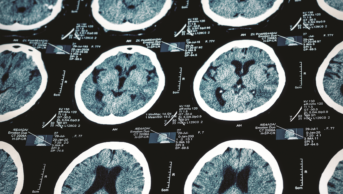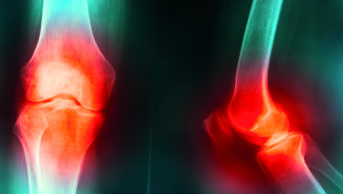
Shutterstock.com
There is no ongoing, government-funded clinical research into the efficacy of medical cannabis, despite calls from the National Institute for Health Research (NIHR), The Pharmaceutical Journal has learned.
The NIHR said an invitation to apply for government funding to conduct clinical trials had attracted one application, which was later declined.
The lack of ongoing research comes two years after medical cannabis was legalised in November 2018.
The NIHR themed call, which was open from October 2018 until July 2019, invited proposals for primary clinical research into the safety and clinical effectiveness of cannabis-based medicinal products (CBMPs).
For proposals to be eligible they needed to look at “management of difficult to treat epilepsy, or other disorders unresponsive to existing treatments where there is sufficient existing evidence to justify further, more definitive, research”.
The declined proposal planned to research cannabidiol for smoking cessation in generalised anxiety disorder.
A spokesperson for the NIHR said that “the themed call closed in July 2019, but medicinal cannabis remains a priority”.
Gino Martini, chief scientist at the Royal Pharmaceutical Society, said that while the lack of applications for NIHR funding “may seem surprising if you look at it at the top level, we were in transition”; noting that the change from Schedule 1 to Schedule 2 took place around the time the call was open.
Martini also said that drug companies “don’t normally apply for NIHR funding”; rather, NIHR calls would normally draw university departments and research hospitals.
“You’re restricted to specialist groups; even though it’s been rescheduled you still require licences,” he said. “Hopefully, with the rescheduling that has occurred, and the need to do more fundamental research, we will see applications like this on the rise.”
Peter Carroll, director of End Our Pain, which campaigns for families of children with severe epilepsy to have access to medicinal cannabis, said the lack of NIHR applications is unsurprising.
“With medical cannabis — and I’m talking about the whole plant extract, not a medicine that’s derived from cannabis and then isolated — I think many of the people who produce that are concerned about how relevant and accurate randomised controlled trials may be for that. It’s a complex of active ingredients rather than just one,” he said.
“I fully understand the need for rigour and for evidence. But in the field of medicine, surely there has to be a slightly broader acceptability of the type of evidence that one would take into account when addressing the clinical needs of a patient”.
Carroll added that “what has come as a particularly bitter disappointment is that the August 2019 report [into barriers to accessing cannabis-based medicinal products], done by the NHS at the behest of the secretary of state, actually said there should be an alternative study for these children [with severe epilepsy] and that appears to have evaporated”.
Meanwhile, a statement issued jointly by End Our Pain and the charity Epilepsy Action, on 30 October 2020, has called on the government to “act on its promises for easier access to cannabis-based medicines”.
The two groups said that while they welcomed randomised control trials and “would ask the NHS and NIHR … to ensure these start as soon as possible”, they would like to see observational trials set up. This, they said, would enable children “to access funding for these medicines with appropriate clinical guidance and monitoring”.
Simon Wigglesworth, deputy chief executive of Epilepsy Action, said: “We’ve been calling for high-quality clinical trials since the start of this debate and warmly welcome the progress in this area.
”In the longer term, this is the only way that could bring cannabis-based medicines for epilepsy into mainstream practice. However, these trials are likely to take time to generate the evidence needed to allow more routine prescribing. The reality is that these children simply don’t have time to wait.”
In November 2019, the charity Drug Science launched Project Twenty21, which aims to monitor the health outcomes of patients using medical cannabis and create what it said would be the “largest body of evidence in Europe for the safety and efficacy of CBMPs”.
A search on
Clinicaltrialsregister.eu did not find any current UK clinical trials of whole-plant or full-spectrum cannabis oils, although a number of ongoing trials are looking into the efficacy of cannabidiol, Sativex (GW Pharmaceuticals) or nabiximols for conditions including Parkinson’s disease, Alzheimer’s disease and multiple sclerosis.


